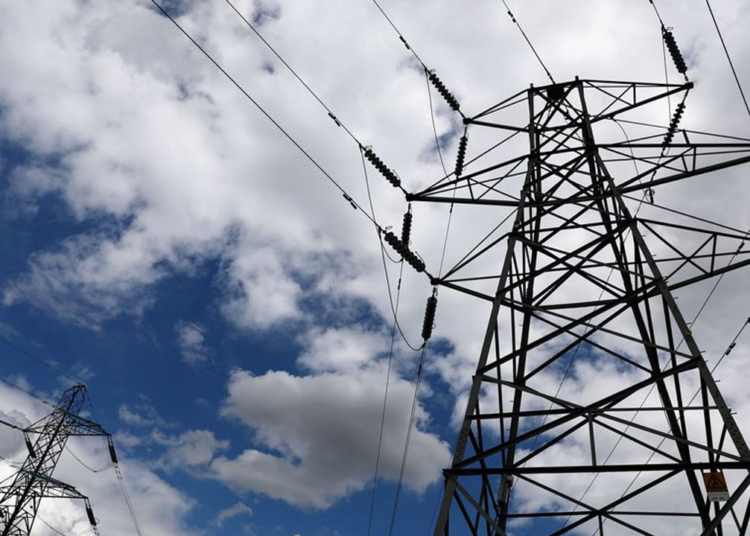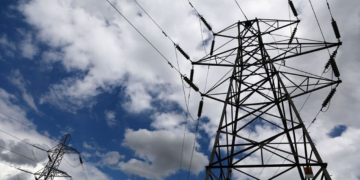The federal government has given the newly established Nigerian Independent System Operator (NISO) the critical task of raising the national grid’s electricity capacity to 8,500 megawatts (MW) from the current over 5,500MW within the next 12 months.
The director general of the Bureau of Public Enterprises (BPE), Ayodeji Gbeleyi, who gave this charge on Wednesday in Abuja, during the retreat for the NISO Senior Leadership Team, also emphasised the need for substantial growth in power generation through improved grid efficiency.
“The National Grid Electricity generation today revolves around 5,500MW. I do hope most sincerely that when we come back here 12 months from now, that generation capacity, based on efficiency of the transmission grid, will be somewhere around 7,500 to 8,500MW,” Gbeleyi stated.
Recall that the NISO was created under the Electricity Act 2023,by unbundling the Transmission Company of Nigeria (TCN) and is tasked with independently managing the national grid’s operations. The company was incorporated as a private company limited by shares which are owned equally by BPE and the Ministry of Finance Incorporated, under the Companies and Allied Matters Act (CAMA) 2020.
Speaking on the sidelines of the retreat, Gbeleyi explained that while the Nigerian Electricity Supply Industry (NESI) currently wheels about 5,500MW daily, the nation’s total generation capacity exceeds 14,000MW.
“Where we stand today, we have about 5,500 MW of power being wheeled on a day-to-day basis. Compare that with the fact that the total nameplate capacity for generation in the country is a bit above 14,000 MW. So, it is not a tall order for us to believe that in the near term, 12 to 18 months, we can scale up capacity, you know, to probably increase that 5,500 by a minimum of 50 per cent,” he added.
Gbeleyi underscored that the target is achievable because the existing generation capacity merely needs to be fully utilised by strengthening the transmission grid and scaling up distribution infrastructure.
The BPE boss stressed that the realisation of this goal depends largely on strengthening the grid and improving electricity distribution infrastructure.
To this end, he said the federal government has secured a $500 million loan from the World Bank to finance upgrades to the national electricity distribution network.
“Because the generation capacity is there, if this grid capacity can be scaled up, and we build in resilience, you know, chances are that with distribution infrastructure also being scaled up,” Gbeleyi said. He added that within this scope, about 3.2 million meters would be provided across Nigeria.
He highlighted that the Presidential Metering Initiative, which aims to distribute two to three million meters, will complement these efforts and raise the total metering record to around seven million, significantly improving access to reliable power.
Supporting the government’s target, the managing director of NISO, Abdu Mohammed described the 8,500MW goal as realistic due to improved coordination and private sector investment.
“NISO expects to see modernisation of the grid, resilience, stability and reliability,” Mohammed said. Regarding the Supervisory Control and Data Acquisition (SCADA) system, he confirmed that contracts had been awarded nationwide and that progress was underway, particularly in the northern regions. He expects SCADA to be fully operational by the end of next year.
Echoing the importance of the national grid’s reliability, the Nigerian Electricity Regulatory Commission (NERC) chairman, Engr. Sanusi Garba, represented by Commissioner Dafe Akpeneye, recalled how former grid detractors eventually returned due to its dependability.
In his goodwill message, NISO board chairman Dr. Adesesan Akin-Olugbade noted that the retreat marked a new administrative era and a crucial step in Nigeria’s path toward a resilient, transparent, and efficient electricity market.
He recounted the evolution of NISO, formed following a May 2024 NERC order to unbundle the Transmission Company of Nigeria (TCN) and establish an independent system operator. NISO Limited was incorporated on May 29, 2024, as a private company equally owned by BPE and the Ministry of Finance Incorporated (MOFI) under the Companies and Allied Matters Act (CAMA) 2020.
Dr. Akin-Olugbade emphasised that NISO’s transformation into a neutral system and market operator underscores a commitment to reliability, transparency, and neutrality—principles essential to maintaining market confidence, investor trust, and public faith.
“As an independent entity, NISO now carries the weighty responsibility of managing the national grid with impartiality and integrity,” he said. “It must guarantee non-discriminatory access, efficient dispatch coordination, and fair market settlement, free from undue influence or conflict of interest.”
He described the board retreat as strategic, setting the foundation for corporate governance excellence, operational discipline, and visionary leadership. The board was charged with establishing frameworks and safeguards for a more dynamic, resilient, and interconnected power grid powered by new technologies and energy sources.
With these initiatives, the Nigerian government and its partners are poised to significantly boost electricity availability and reliability nationwide, aiming to meet the ambitious 8,500MW generation threshold within a year.






